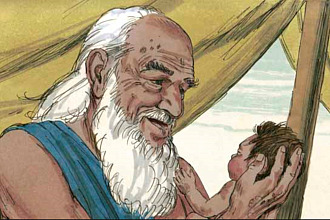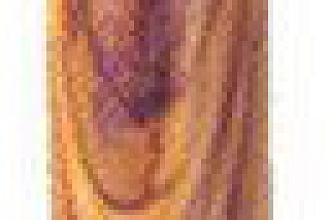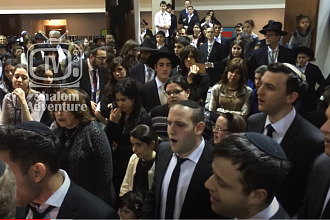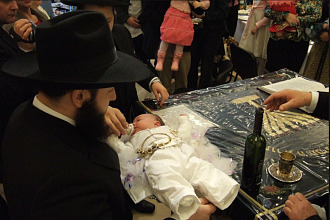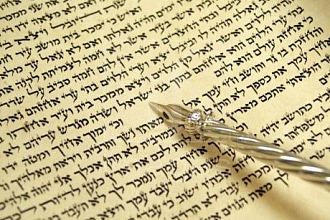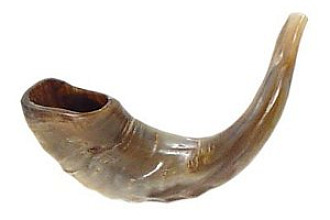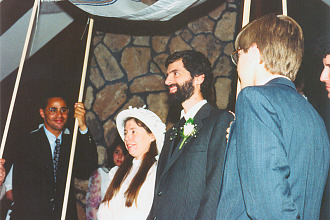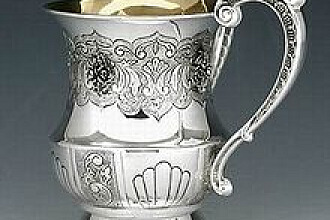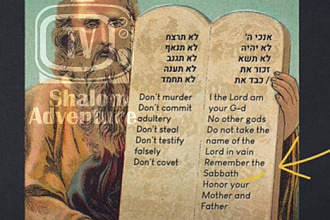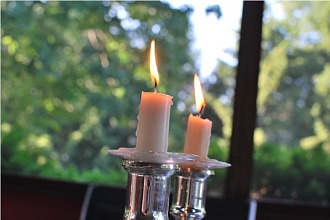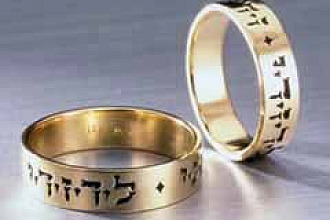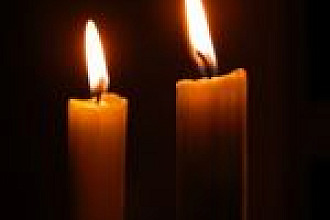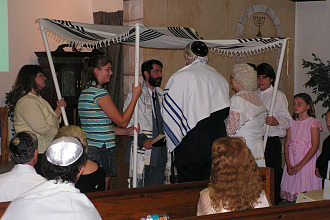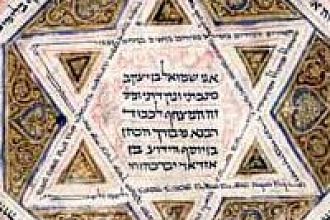A mikvah, מקווה, is an immersion pool that is used for ceremonial cleansing.
Mikvahs that date back 2,000 years can be found in various parts of Israel such as just opposite the southern portion of the Western Wall in Jerusalem, and in Qumran near where the Dead Sea Scrolls were written.
According to the Torah the Levites were to wash their bodies before ministering in the Sanctuary (Ex. 29:4, Lev. 14:8,9; 16:4). Likewise, lepers, those who had a bodily discharge of any kind (Lev. 15:5-13), and those who touched dead bodies or unclean animals (Lev. 22:6) were commanded to wash their bodies. The Torah also mentions that any metals that were taken after a war should pass through water (Numbers 31:21,22). Many, if not all, of these admonitions can be fulfilled by the daily washing that is commonly practiced in many societies today.
Today it is a tradition in some Jewish groups for members to immerse themselves in a mikvah at certain times, such as after a monthly menstrual cycle, after marital relations, after bearing a child, before certain holy days such as Yom Kippur, before conversion, and for a bride and groom, before their wedding. Two thousand years ago a Jewish man from the tribe of Levi named Yochanan began to immerse people as a demonstration of their desire to be cleansed from sin. This concept could very well have come from David's prayer in Psalm 51 that we have looked at several times in these studies. In Psalm 51:4 & 9 King David wrote, "Wash me thoroughly of my iniquity, and purify
me of my sin... purge me with hyssop till I am pure; wash me till I am whiter than snow." In addition, two Jewish prophets,cleansing from sin and being washed. The prophet Isaiahwrote, "Wash yourselves clean; put your evil doings away from My sight. Cease to do evil, Learn to do good... Be your sins like crimson they can turn snow-white" (Isaiah 1:16-18).And the prophet Jeremiah wrote, "Wash your heart clean of
wickedness..." Jeremiah 4:14.
Tevilah, טבילה, is the Hebrew word for immersion. The Greek word for immersion is baptismo, and is the origin of the word baptism. The Levite Yochanan who was immersing people for the forgiveness of sins became known as Yochanan ha-matvil
המטביל) ) or Yochanan the immerser, or John the baptist.
One day Y'shua the Messiah came to Yochanan the immerser to be immersed. Yochanan was surprised and said that Y'shua did not need to be immersed because He was already pure, but Y'shua insisted on being immersed to fulfill all righteousness and to be an example. Y'shua was immersed for all those who, for whatever reason, never had the opportunity to be immersed.
After Y'shua was killed and resurrected back to heaven during the feast of Passover and Unleavened Bread His followers continued to tell others about Him. Fifty days later, during the feast of Shavuot, 3,000 Jewish people in Jerusalem wanted to accept Y'shua into their hearts as Messiah. Y'shua's followers told the people to "turn from your sin, return to God, and each of you be immersed on the authority of Yeshua the Messiah
into forgiveness of your sins, and you will receive the gift of the Ruach HaKodesh (Holy Spirit)!" Acts 2:38 Complete JewishBible. The text continues by saying that "those who accepted what he said were immersed, and there were added to the group that day about three thousand people. They continued faithfully in the teaching of the emissaries, in fellowship, in breaking bread and in the prayers." Acts 2:41,42 CJB. We
notice from this example that when the people were immersed they were "added to the group," and continued following the teachings, in fellowship, and in worship together. The people were not just immersed and sent on their way. They became part of the congregation, part of the mispacha (family) of God.
Immersion is in many ways like a wedding. The couple doesn't fall in love at the wedding; it is the time when they publicly demonstrate that they are in love and that they are committed to each other for life. The same is true with immersion. The immersion is not when we choose to follow the LORD. But it is the public demonstration that we love
Y'shua, and have chosen to follow Him, and of our desire to have Him forgive and wash away our sins, and that we want to be filled with His Spirit so we can have the power to walk in the ways of the Word of God.
Just as the wedding ceremony does not create love in the hearts of the couple, the immersion ceremony itself does not cleanse away the sin. It is a ceremony demonstrating that God has cleansed us from sin through the sacrifice of the Messiah. In immersion a person goes down under the water and then comes back up. Just as Y'shua died, was buried in the grave, and was raised back to heaven, immersion symbolizes that our old life of sin has died and that a new life, empowered by God, is coming alive in us.
During a wedding the individuals getting married not only get a spouse, they get a mother-in-law, a father-in-law, brothers-inlaws, and sisters-in-law, etc. We don't marry just an individual; we marry into a family. The same is true with immersion. It is a time when we publicly unite our hearts with Y'shua and become brothers and sisters with fellow believers in the congregation. We are then, by God's power, to continue in the teachings of the Word of God, in fellowship with the congregation, and in worshiping together with the congregation to which we have been added.
Continuing in the teachings is an important part of being a follower of Y'shua. Since you have prayerfully read this far I am sure your heart is in harmony with the biblical teachings we have studied together. If you have not been immersed and added to a congregation that teaches the biblical teachings taught here I encourage you to do so right away. If you do not know of a congregation that teaches these truths, contact those from whom you received this book and they will assist you. If you are not able to reach someone locally please go to www.Jewishheritage.net and contact us and we will be in
touch with you right away.
We know that the Holy Spirit has been speaking to your heart as you have read these pages. We want to encourage you, while all this is fresh in your mind, to take the next steps in your journey toward the home God has promised you. We are eager to be helpful in any way we can.
Originally from: Jewish Discoveries by Jeff Zaremsky, pages 327-330, which contains a total of 22 fascinating chapters of biblical history and lessons plus 25 rich Jewish tradition sections, and 27 powerful testimonies, with over 40 beautifully rendered professional works of art all on over 300 jam packed pages. You can own this treasure by visiting www.Jewishheritage.net
Posted on Shalom Adventure by Barbara Zaremsky







